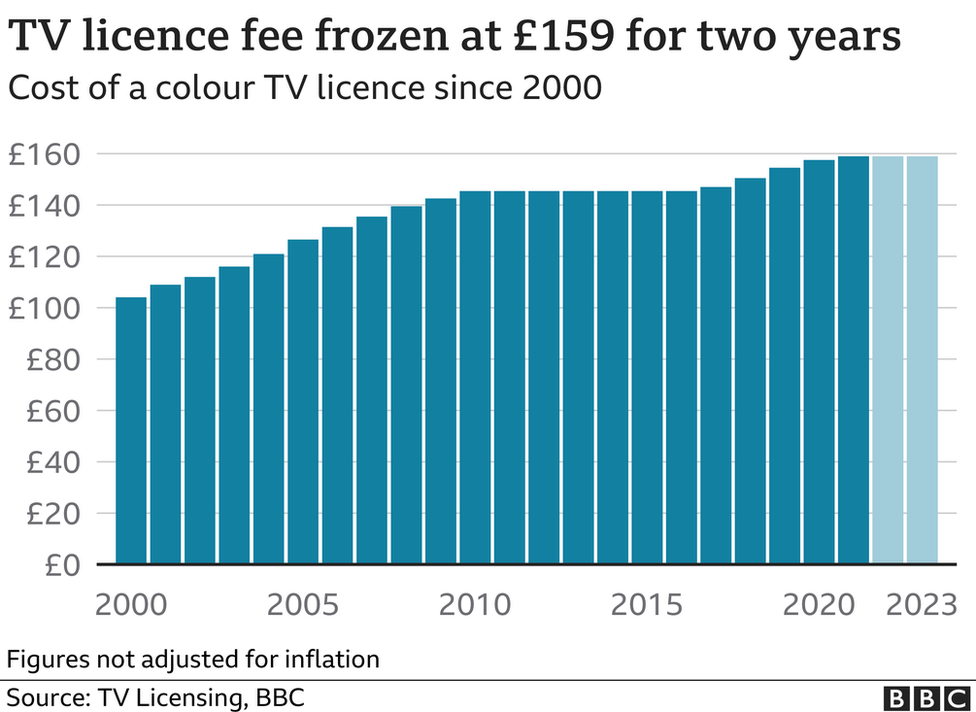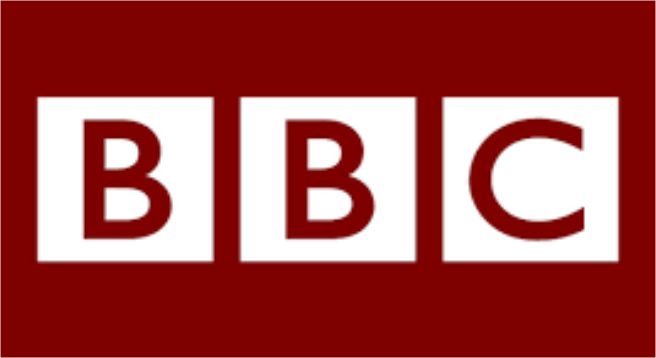UK’s Culture Secretary Nadine Dorries has confirmed the BBC licence fee is to be frozen at £159 for two years, according to a report by BBC.
Speaking in the House of Commons on Monday, Dorries said the government could “not justify extra pressure on the wallets of hardworking households”.
Following the two-year freeze, she said the fee will rise in line with inflation for the following four years.
BBC Director General Tim Davie said the freeze would mean “tougher choices, which will impact licence fee payers”.
The licence fee pays for BBC services, including TV, radio, the BBC website, podcasts, iPlayer and apps. Its existence is guaranteed until at least 31 December 2027 by the BBC’s royal charter, which sets out its funding and purpose.
Dorries said: “The BBC must support people at a time when their finances are strained, make savings and efficiencies, and use the billions in public funding it receives to deliver for viewers, listeners and users.”
In a joint statement, DG Davie and BBC Chairman Richard Sharp said the settlement would mean the BBC “will now have to absorb inflation”, the British national broadcaster said in a report involving itself.
“That is disappointing,” they said, “not just for licence fee payers, but also for the cultural industries who rely on the BBC for the important work they do across the UK.”
They noted the corporation’s income for UK services is already 30 percent lower in real terms than it was 10 years ago.
“We will continue to drive an ambitious programme of reform moving more of our output across the UK, transitioning the organisation to a digital future and delivering distinctive and impartial content,” they added.
The Department for Culture, Media and Sport (DCMS) said the BBC is expected to receive about £3.7 billion in licence fee funding in 2022 and £23 billion over the duration of the settlement period.
It added the BBC also receives more than £90 million per year from the government to support the BBC World Service.

The Culture Secretary tweeted over the weekend that this announcement about the BBC licence fee will be the last – and it was time to discuss new ways to fund and sell “great British content”.
She said “the days of the elderly being threatened with prison sentences and bailiffs knocking on doors” were over.
Following the announcement of the freeze, Ms Dorries said attention would in due course turn to the BBC’s funding model in the longer term.
The Culture Secretary has effectively kickstarted a public debate on the future of the BBC, pitting those who say she wants to destroy a national treasure against those who argue, in a world of Netflix and Disney Plus, the licence fee model is outdated.
She was reprimanded by the House of Commons Speaker for indicating her decision to freeze the licence fee on Twitter a day before she brought it to Parliament. And her measured tone today felt very different to yesterday’s tweet in which she dramatically claimed this announcement on the licence fee would be “the last”.
She says this is about helping struggling families who are feeling the pinch of rising prices – but her critics say it’s ideological.
 TRAI revamps website to connect with wider audience
TRAI revamps website to connect with wider audience  Prime Video to limit in India number of TV sets having access per subscription
Prime Video to limit in India number of TV sets having access per subscription  Delhi HC orders meta to remove deepfake videos of Rajat Sharma
Delhi HC orders meta to remove deepfake videos of Rajat Sharma  Govt. blocked 18 OTT platforms for obscene content in 2024
Govt. blocked 18 OTT platforms for obscene content in 2024  Broadcasting industry resists inclusion under Telecom Act
Broadcasting industry resists inclusion under Telecom Act  ‘Cobra Kai Season 6 Part 3’ set for February 2025 release on Netflix
‘Cobra Kai Season 6 Part 3’ set for February 2025 release on Netflix  Radio City unveils ‘WOKA Santa’ to spread Christmas cheer across 10 cities
Radio City unveils ‘WOKA Santa’ to spread Christmas cheer across 10 cities  ‘Squid Game 2’ comes to Sunburn Goa 2024
‘Squid Game 2’ comes to Sunburn Goa 2024  Zee Telugu to premiere ‘Saripodhaa Sanivaaram’ on Dec 29
Zee Telugu to premiere ‘Saripodhaa Sanivaaram’ on Dec 29  &pictures announces ‘Khichdi 2’ premieres December 29
&pictures announces ‘Khichdi 2’ premieres December 29 








